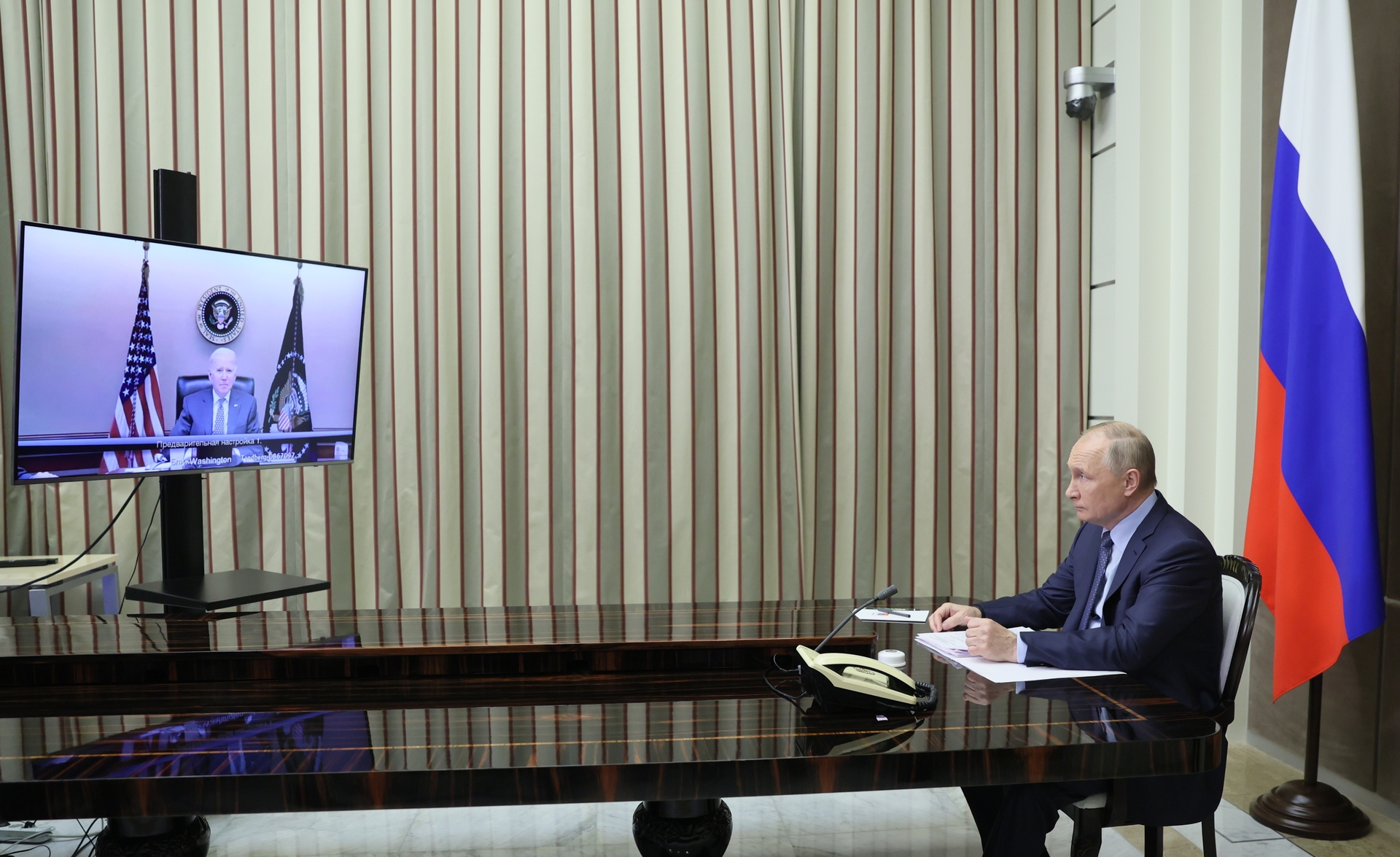Russian President Vladimir Putin and Turkish leader Recep Tayyip Erdogan discussed Russian proposals on security guarantees during a telephone conversation.
This was reported by the Kremlin press service.
The heads of state exchanged congratulations on the New Year, summed up the results of bilateral cooperation in 2021, and also expressed their intention to further intensify the mutually beneficial partnership between Russia and Turkey.
“International topics were also touched upon, including the well-known proposals for the development of legally formalized agreements guaranteeing the security of the Russian Federation,” the statement says.
In addition, Putin and Erdogan discussed issues of resolving the situation in Libya and Syria.
Recall that at the end of December, Vladimir Putin also had a telephone conversation with US leader Joe Biden.
As specified in the Kremlin, the main topic of the conversation was also the implementation of the agreement reached during the videoconference on December 7 to launch negotiations on the provision of legal guarantees to ensure the security of Russia.
In particular, the Russian leader explained to Biden the principled approaches underlying the draft treaty between Moscow and Washington and the agreement between the Russian Federation and NATO countries, which the Russian side sent in mid-December.
“It was emphasized that the result of joint work should be solid legal guarantees that exclude NATO's advance to the east and the deployment of threatening weapons systems in the immediate vicinity of Russian borders.
It was emphasized that the security of each country can be ensured only on the basis of strict adherence to the principle of the indivisibility of security, ”the Kremlin noted.
RIA News
© Mikhail Metzel
In turn, Biden said that Moscow and Washington bear a special responsibility "for ensuring stability in Europe and the world as a whole."
He also stated that the United States has no intentions to deploy offensive strike weapons on Ukrainian territory.
The leaders also confirmed that negotiations on these issues will be held in Geneva on January 9-10, January 12 - in Brussels within the framework of the Russia-NATO Council, and discussions in the OSCE are scheduled for January 13.
Aide to the President of the Russian Federation Yuri Ushakov reported that Moscow is satisfied with the contact, the direction of which "was quite constructive."
According to him, the Russian president indicated to his American colleague that the main thing for Moscow is to achieve a result on the issue of ensuring the country's guaranteed security.
“The US President, in principle, agreed with this point of view and reacted quite logically and quite seriously,” he said.
As the press secretary of the Russian leader Dmitry Peskov noted, Vladimir Putin considered it necessary to have a telephone conversation with the US leader before the start of consultations on security guarantees.
Prior to that, Putin and Biden communicated via video link on December 7.
Then the Russian leader said that Moscow was seriously interested in obtaining reliable, legally fixed guarantees that would exclude NATO's eastward expansion.
On December 17, the Russian Foreign Ministry announced the draft treaty with the United States and a security agreement with NATO, which were transferred to Western partners.
The first document contains a proposal for interaction between Moscow and Washington on the principle of "indivisible and equal security", and also excludes the use of the territory of third countries to prepare an armed attack against the other side of the treaty.
The agreement on security measures for Russia and the member states of the North Atlantic Alliance stipulates that the parties do not strengthen their security "at the expense of the security of others."
According to the document, Russia and the alliance must confirm that they do not consider each other to be enemies, and NATO members must abandon any military activity on the territory of Ukraine and a number of other countries.
Russian Deputy Foreign Minister Sergei Ryabkov called on Washington to take Russian initiatives in the most serious way.
“The international situation is very tense, and it is in the common interest to find ways to reduce the tension,” the diplomat noted.
In turn, Russian Deputy Foreign Minister Alexander Grushko called on NATO countries to take Moscow's proposals on security guarantees seriously, noting that otherwise the alliance would have to deal with a military-technical alternative.
Grushko added that Russia has sufficient technical capabilities to ensure its own military security.

